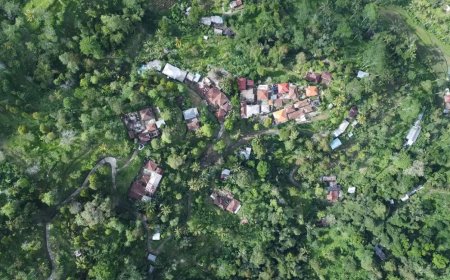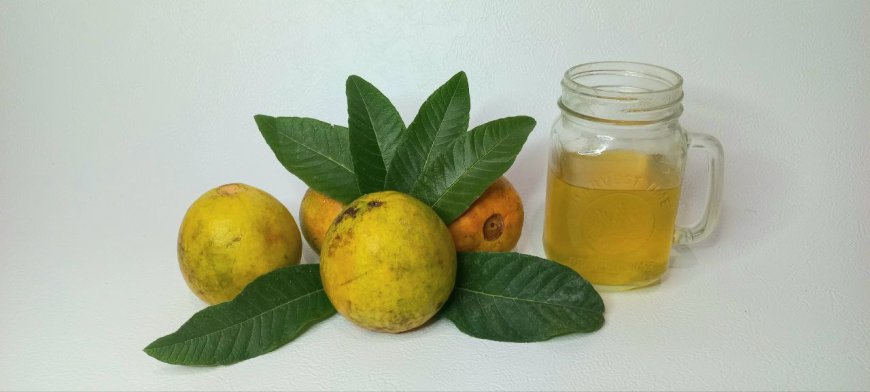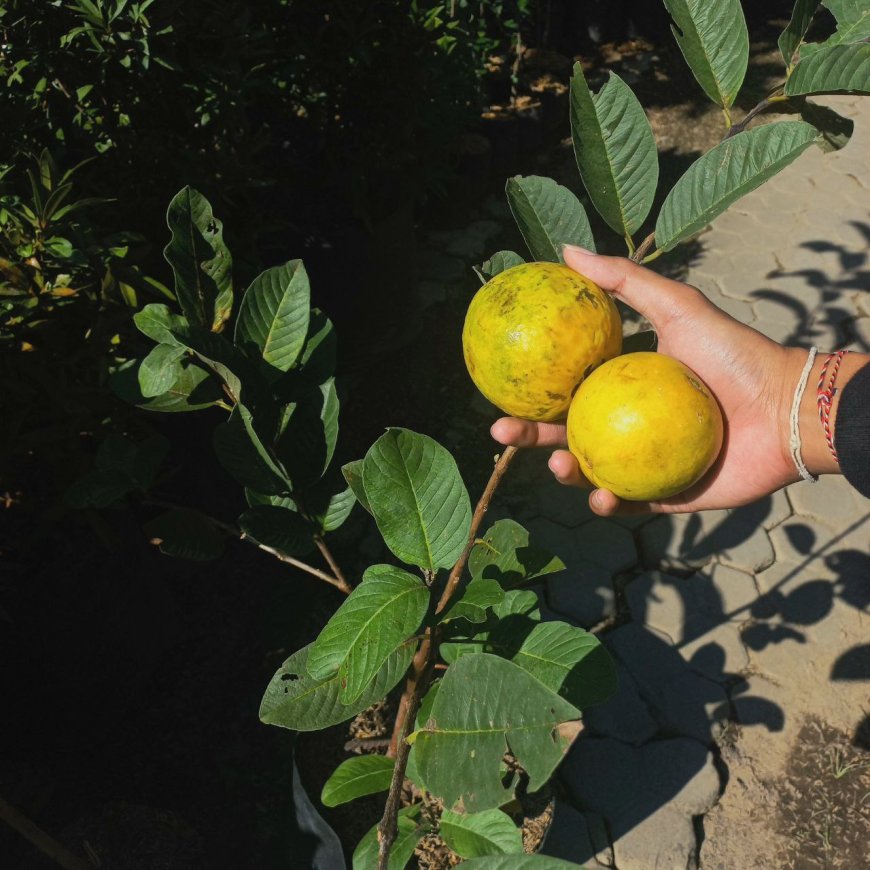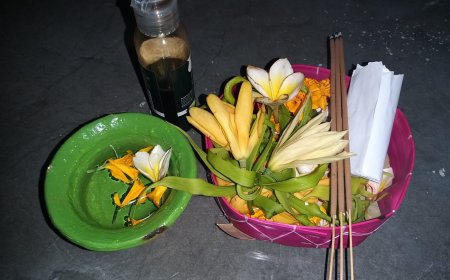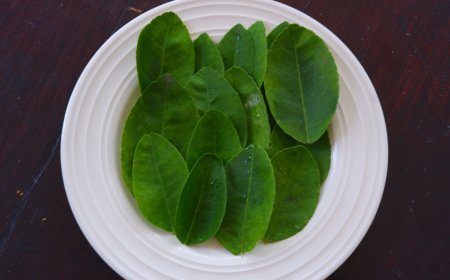Guava Leaves Are an Effective Medicine for Diarrhea
In the Usadha Taru Pramana ejection, there are many kinds of medicinal plants that can be used to cure various diseases, one of which is guava. The guava plant, especially the leaves, is famous for its active flavoinoid compounds which can be used as an antibacterial to treat diarrhea or diarrhea. Apart from the leaves being used as anti-diarrheal drugs, other parts of the guava plant also have many benefits.
Usadha is a system of medicine that uses herbal ingredients and is thought to have been taken from the teachings of the Ayur Veda. Ayur Veda is Veda Smriti which discusses the tatwa or philosophy regarding medicine, how to examine sick people, diagnose disease, make medicine, and the ethics of treatment. Usadha Bali is believed to have absorbed the knowledge system from the Ayur Veda and then adapted it to the environmental and cultural resources of the Balinese people. Among the Balinese Usadha that exist today, Usadha Taru Pramana is one of the main sources for studying medicinal ingredients derived from plants. In the Usadha Taru Pramana ejection, many kinds of medicinal plants are mentioned that can be used to cure various kinds of diseases, such as guava, pule plants, star fruit, jempiring, betel plants, papaya plants, moringa plants, soybeans, diamond leaves and many more. On this occasion, we will discuss the guava plant or its Latin name Psidium guajava which is in the Lontar Usadha Taru Pramana.
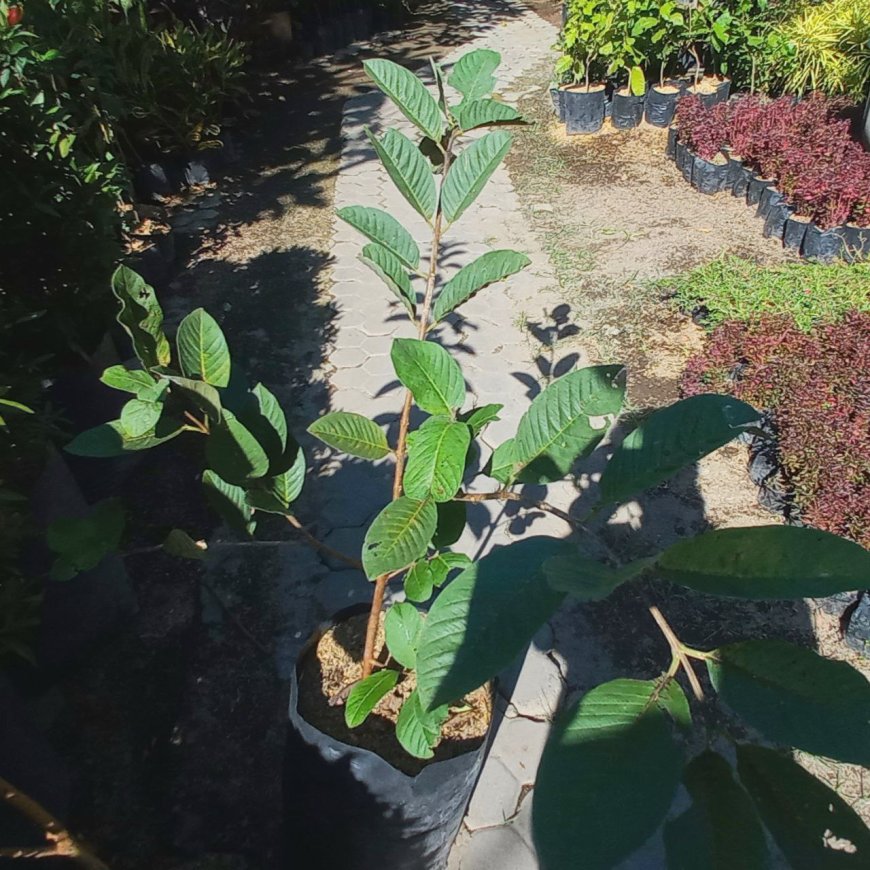
Guava Plants (Photo Source : Private Collection)
Guava (Psidium guajava) is one of the plants mentioned in Lontar Usadha Taru Pramana which can be used as medicine for various diseases, ranging from incontinence, anti-inflammatory, stopping bleeding and diarrhea. This is because the guava plant contains compounds such as flavonoids, essential oils, tannins, vitamin C, fiber, antioxidants and tannic acid. The guava plant, especially the leaves, is famous for its active flavoinoid compounds which can be used as an antibacterial to treat diarrhea.
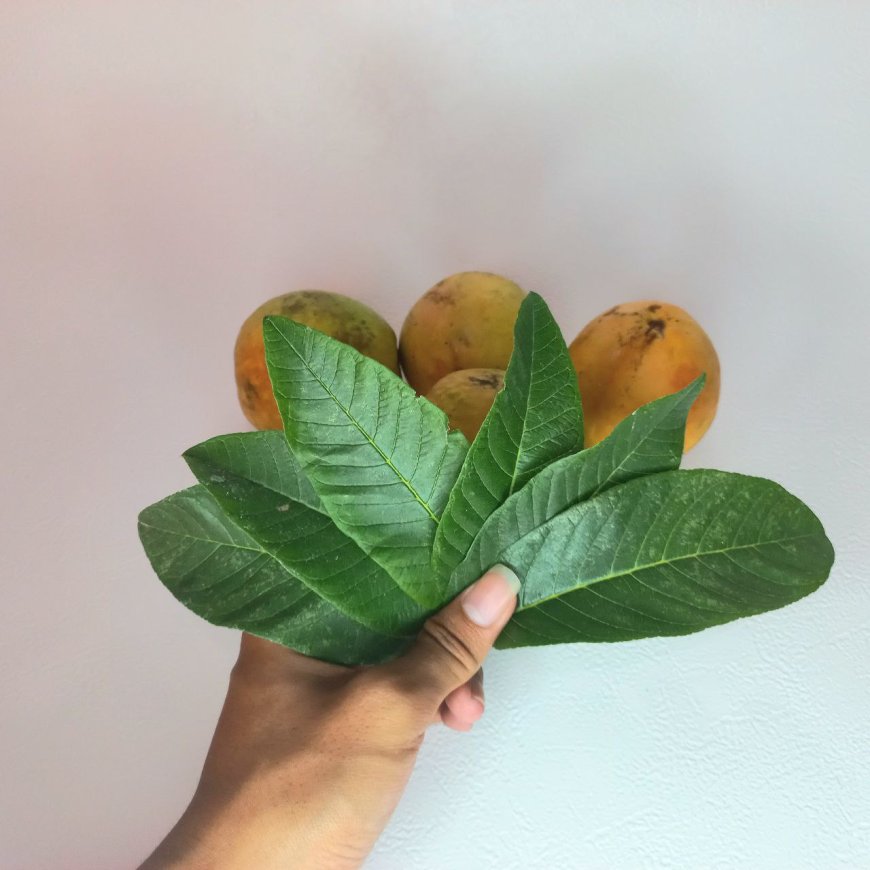
Guava Leaves (Photo Source : Private Collection)
Diarrhea is a health problem characterized by passing watery stools three or more times in one day. The symptoms that appear when someone experiences diarrhea, such as flatulence, inability to resist the urge to defecate, stomach ache, nausea or vomiting, fever, dizziness, and slimy stools. Diarrhea can be caused by viral infections, lactose intolerance, food allergies, and most commonly caused by bacterial infections, such as Salmonella, Eschericia coli, and Clostridium difficile. Because one of the causes of diarrhea is bacterial infection, we need to consume food or drinks that contain antibacterial compounds, such as flavonoids, tannins and essential oils.
As for what is mentioned in the manuscript of Lontar Usadha Taru Pramana regarding the guava plant as follows.
“Tityang taru sotong, daging anget, rasa sepet, dados anggen tamba pangemped missing.”
If the manuscript above is translated into English, it has the following meaning.
"My name is sotong, the contents are warm, taste astringent, and can be used to treat diarrhea"
The statement mentioned in Lontar Usadha Taru Pramana that guava plants (especially the leaves) can be used to treat diarrhea has been proven true by a study from Adebayo A. Gbolade, with his journal entitled Journal of Medicinal Plants Research, 2008. From several other studies also mentioned that anti-diarrheal activity in herbal plants is contained in the content of secondary metabolites consisting of flavonoids, tannins, alkaloids, essential oils, and some of these compounds have pharmacological abilities as anti-diarrhea, anti-inflammatory, hypoglycemic, anti-hypertensive, and other pharmacological abilities. Among the compounds mentioned previously, flavonoids have the most effective role as antidiarrheals. With the compounds previously mentioned, guava leaves can be processed into medicine by extracting the leaves, making capsules, masticating leaves, or processing them by boiling them with makeshift tools at home.
To make antidiarrheal medicine from guava leaves simply at home, there are several things you need to prepare, namely guava leaves, clean cloth and clean water. The first step that must be taken is to choose fresh guava leaves and clean them with clean water. After that, cut or chop the leaves into small pieces. Heat the water, when it boils, turn off the heat and put the cut guava leaves into the hot water. Cover the container used earlier, then let the leaves soak in hot water for about 10 to 15 minutes. After the infusion process is complete, the infusion is filtered using a clean cloth and the filtered guava leaf infused water is ready to drink. There are things you need to pay attention to if you want to drink guava leaf infusion as explained previously, namely pay attention to the hygiene of the leaves to avoid dangerous microorganisms which can worsen diarrhea and avoid long-term use because it can cause constipation.
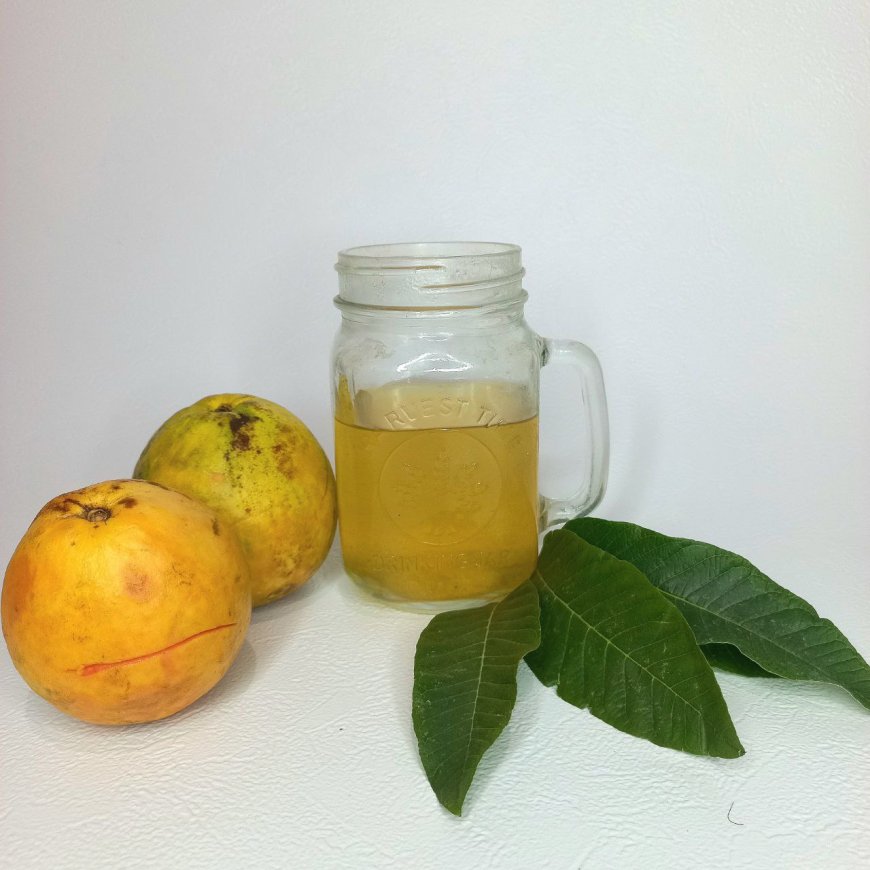
Homemade guava leaf infusion (Photo Source : Private Collection)
Apart from the leaves being used as anti-diarrheal drugs, other parts of the guava plant also have many benefits. When consumed, guava fruit can fight free radicals due to its antioxidant content, improve digestion because it has a high fiber content, and strengthen the body's immune system due to its vitamin C content. Guava root has a tannin compound that can be used to treat dysentery. Guava bark also contains tannin acid which has anti-diarrheal and anti-inflammatory properties.
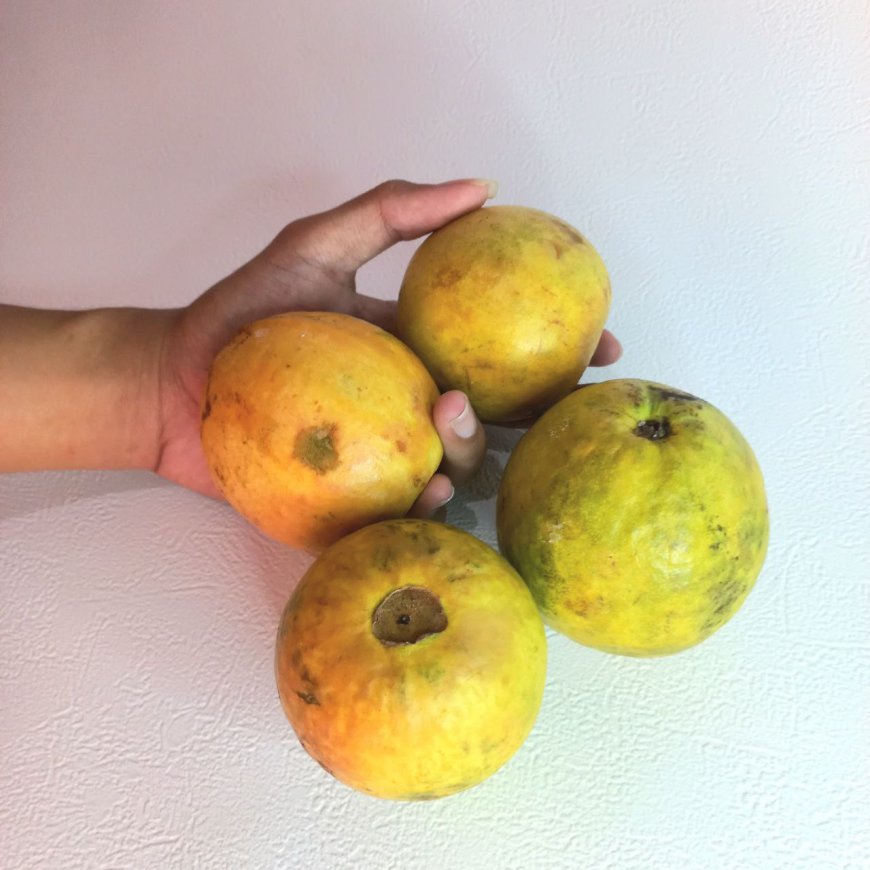
Guava Fruit (Photo Source : Private Collection)
Apart from being mentioned as a medicine for diarrhea in the Lontar Usadha Taru Pramana, the guava plant is also mentioned in the Usadha Rukmini Tatwa as a medicine to bring out a sense of libido or sexual desire. It is used with guava mixed with several ingredients, such as cayenne pepper root, galangal oil, milk oil, then finely crushed. Medicine that have been finely ground can be rubbed around the male genitalia.
That is the explanation regarding the guava plant, especially the leaves which can be used as a powerful anti-diarrhea medicine, as mentioned in Lontar Usadha Taru Pramana and proven correct by several studies. Apart from the leaves which can be used as an anti-diarrhea medicine, it turns out that the roots, tree bark and fruit also have many health benefits.





